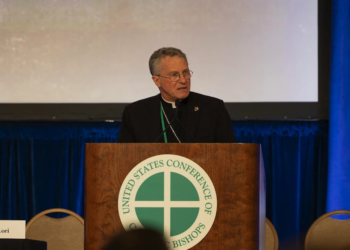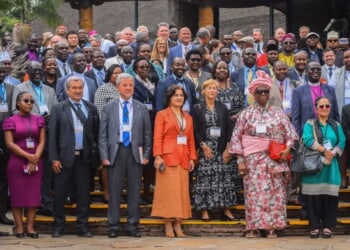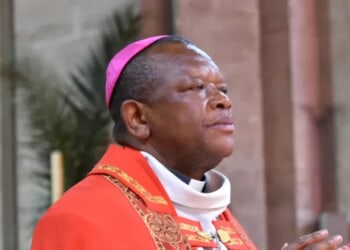Cllr. Robert Barnard represents Penistone East Ward on Barnsley Council.
I was born in Barnsley, have lived here all my life, and have been a Conservative Member of Barnsley Metropolitan Borough Council since 2006. I remember, shortly after I was elected, asking why Latin was not taught in the Borough’s schools – to which one of the old Labour councillors replied: “Nay lad, then they’d know what motto meant!” It is, of course, Spectamur Agendo – Judge Us By Our Actions – so readers can draw their own conclusions as to the reasons for that educational omission.
The first Council in Barnsley was established in 1869 at a time when the town was rapidly expanding, thanks to its then traditional industries of linen, glass, and coal. In fact many of the early councillors were proprietors of those industries, and several mayors were even Conservatives. One such was Richard Carter who was Mayor from 1874/75, a geologist and civil engineer – and owner of a linen mill. He oversaw improvements to the water supply and drainage in the Borough. Labour gained control of the old County Borough Council in 1934 and has maintained its stranglehold on the enlarged Metropolitan Borough, which has incorporated urban and rural districts since it was formed in 1975.
The area has changed over the decades with the demise of traditional industries. Now due to its proximity to major transport routes such as the M1 and its location within commuting distance of Leeds, Bradford, Huddersfield, Wakefield and Sheffield, it has become a popular dormitory town. New building is of course not universally welcomed and especially when its impact undermines the traditional character of villages and when the infrastructure is not correspondingly enhanced. It would be churlish not to point out some of the more recent improvements – such as the revitalised town centre known as the Glassworks, with its new shopping, leisure and entertainment venues, attracting an increasing footfall. We also have some excellent visitor attractions like Experience Barnsley in the Town Hall, Cannon Hall – a stately home and park, Elsecar Heritage and Worsborough Mill – both industrial museums.
In the past, Barnsley was considered to have a static population with many families like my own living in the same villages for generations – in fact, I can trace some back to the Middle Ages, but an account of that would be outside the scope of this publication. One benefit is that Barnsley has been spared some of the well-publicised problems which have beset neighbouring towns like Rotherham. It has also meant that politics has been less volatile than elsewhere – until now, at least.
The Local Government Boundary Commission has recently undertaken a review of ward boundaries in an attempt to equalise the number of electors in each, with twenty-one wards of three councillors giving a total of sixty-three. Until now, Barnsley has used election by thirds whereby each councillor is elected for a four-year term, three years out of four with the fourth year fallow. An arcane system first introduced by the Municipal Corporations Act 1835, which adds cost and disrupts business with unnecessary periods of pre-election purdah. From 2026, the Council will change to all-out elections every four years. This change comes at a time when politics in Britain is experiencing in-flight turbulence, leaving many to wonder if those on the flight deck know the difference between real life and an Islington dinner party simulator.
It is now becoming apparent that many people, and especially those for whom politics is not a preoccupation, are questioning the status quo – and do not believe anything they are told, indeed have even started to think that the state is actively working against their interests. Whether it be higher taxes for worsening services, petty regulation impacting everyday life, bins not collected, or the increasing perception of two-tier justice and the sight of those who never contributed to Britain being in receipt of largesse at our expense. All this contributes to the feeling that the British people are flying economy while others are in business class.
The big question here in Barnsley is how will all this affect the outcome of the 2026 elections? Which party or parties will benefit and which will see declining fortunes. It is fair to say that the voters are not satisfied with the status quo and want change – the old maxim of ‘we have always done it this way’ is not enough to persuade people to vote the way they always have. Who has the vision to move beyond the tired old politics of the past and realise people are no longer impressed with councillors, MPs and candidates turning up for photo-opportunities with bin liners and a litter picker. What they want and need is to see a new direction and one which will take them where they want to go, to a better place for them and their families and not into some dystopian future.
The challenge for all parties is to offer a positive vision, prioritising results over bureaucratic process, as well as getting the bins emptied – or be judged by their actions.



![Former Bravo Star Charged After Violent Assault Using a Rock-Filled Sock in Tennessee Walmart [WATCH]](https://www.right2024.com/wp-content/uploads/2025/07/Former-Bravo-Star-Charged-After-Violent-Assault-Using-a-Rock-Filled-350x250.jpg)



![NYC Man Snatches Child Off The Sidewalk, Parents Chase Him Down [WATCH]](https://www.right2024.com/wp-content/uploads/2025/07/NYC-Man-Snatches-Child-Off-The-Sidewalk-Parents-Chase-Him-350x250.jpg)
![Karoline Leavitt Levels CNN's Kaitlan Collins and Other Legacy Media Reporters [WATCH]](https://www.right2024.com/wp-content/uploads/2025/07/Karoline-Leavitt-Levels-CNNs-Kaitlan-Collins-and-Other-Legacy-Media-350x250.jpg)
![Man Arrested After Screaming at Senators During Big Beautiful Bill Debate [WATCH]](https://www.right2024.com/wp-content/uploads/2025/06/Man-Arrested-After-Screaming-at-Senators-During-Big-Beautiful-Bill-350x250.jpg)

![Leftists Lose Their Minds After Jason Kelce Celebrates Being an American [WATCH]](https://www.right2024.com/wp-content/uploads/2025/07/Leftists-Lose-Their-Minds-After-Jason-Kelce-Celebrates-Being-an-350x250.jpg)





